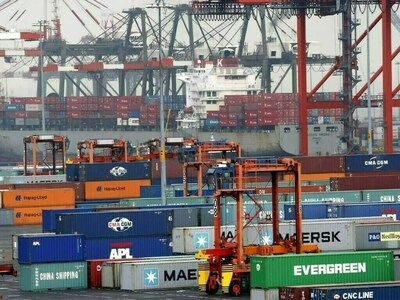Exporters Voice Concerns Over Sales Tax on Imports Under EFS
FAISALABAD: During a press briefing, Hazar Khan, the Senior Vice Chairman of the Pakistan Hosiery Manufacturers & Exporters Association (PHMA), expressed apprehension that the imposition of sales tax during the import phase under the Export Facilitation Scheme (EFS) could undermine the export sector.
He cautioned that the government’s intention to levy sales tax at the import stage within the EFS framework would deliver another significant setback to apparel and textile exporters, who are already grappling with substantial financial difficulties. He stressed that the existing system for collecting and refunding sales tax is not only ineffective but also fosters opportunities for illicit activities through fraudulent refunds, while legitimate exporters encounter protracted delays in receiving their entitled reimbursements.
The value-added textile segment firmly advocates for the continuation of the EFS in its original format, as it was before Budget 2024-25, to maintain liquidity and transparency throughout the value chain. This position also garners support from the inter-ministerial committee, spearheaded by the federal minister for Planning, under the guidance of the prime minister.
Chaudhry Salamat Ali, Group Leader of PHMA, noted that the EFS was collaboratively developed with industry stakeholders and has enhanced the export process through streamlined operations, digitization, and improved efficiency. The scheme, fully automated under the WeBOC and PSW systems, has delivered financial relief to exporters.
He emphasized that APTMA relies on outdated machinery characterized by poor quality and elevated costs, whereas value-added garment manufacturing necessitates yarn that adheres to international benchmarks. The government’s authorization of yarn imports under the EFS serves as a pivotal factor in the growth of exports.
Arif Ihsan Malik, former Chairman of APBUMA, mentioned that duty-free yarn imports have been permitted for a considerable period under diverse SROs, mirroring policies adopted by Bangladesh, Vietnam, and other nations. He dismissed APTMA’s assertion that 100 of their mills have ceased operations as unfounded and urged them to furnish accurate data to the media. He also championed the idea of enabling commercial importers to import yarn under the EFS to extend benefits to small and medium-sized exporters.
Mian Kashif Zia, former chairman of PHMA, stated that the apparel industries in Bangladesh and Vietnam also depend on raw material imports, supported by similar facilitation schemes administered by their respective governments. He argued that levying sales tax under the EFS would negate its fundamental purpose.
Mian Farrukh Iqbal, former Chairman of PHMA, conveyed that the government’s $60 billion export target outlined in the “Uraan” program would be jeopardized if the EFS is rescinded. He further asserted that APTMA produces substandard yarn that fails to meet international quality standards, thereby compromising the overall quality of garments manufactured using it.



Comments (0)
No comments yet. Be the first to comment!
Leave a Comment